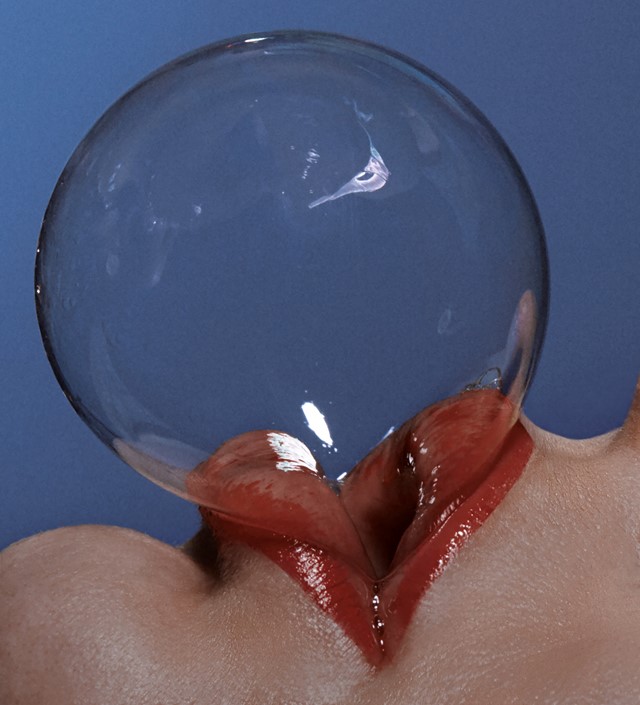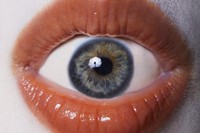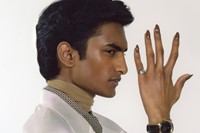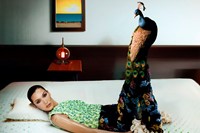The Dutch photographer’s new solo exhibition in Amsterdam celebrates the transformational potential of fashion and beauty. “It’s about being able to play,” she says
Carlijn Jacobs bends and warps her models’ bodies to surreal effect. In one photograph, an expressive face is stretched, dome-like, through a large wine glass full of goldfish; in another, a woman lies back on a silk sheet, with parts of her skin exposed to the camera while her face is covered by an eerily serene white mask. The Dutch photographer confidently straddles the worlds of fashion and art, shooting for magazines including AnOther, Dazed and Vogue, and famously photographing the album artwork for Beyoncé’s Renaissance.
Her images invite viewers into an imaginative, alternate world. Many of her photographs are taken from life, with some new works partly formed using AI. “I started with all of this because I wanted to escape my boring hometown,” laughs the artist when we speak ahead of Sleeping Beauty, her first solo show, opening at Foam in Amsterdam. “It’s about something I haven’t seen yet or something unusual. There’s a rush inside of me to see new things. I stage things. I think the imagination makes it more fun. I celebrate transformation; that’s something I do in my work a lot. If I shoot a model, I want to transform her and create something that’s not there yet.”
The exhibition celebrates the transformational potential of fashion and beauty. From geisha make-up to Venetian carnival masks, Jacobs is interested in the ability to change shape and form through dressing up. She is also fascinated by the commitment that extends beyond the physical transformation, with geishas, for example, embracing new lifestyles and identities.
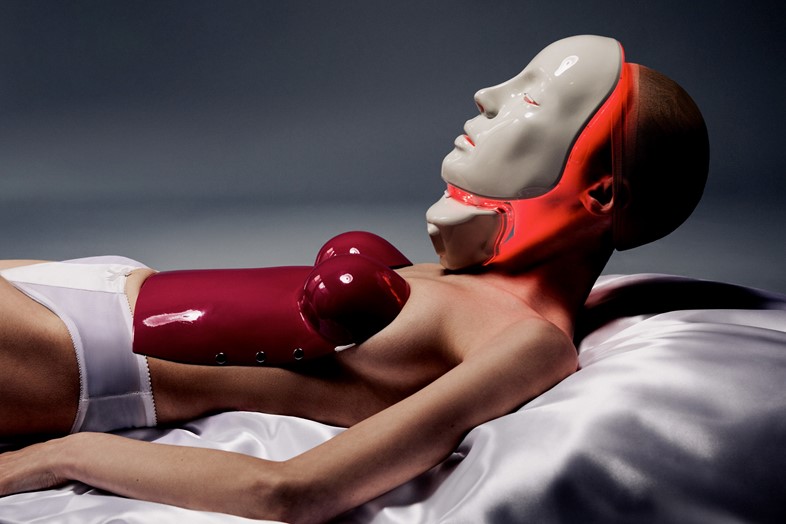
Jacobs is particularly intrigued by the dual aspect of transformation, whether it allows the person dressing up to hide or reveal who they really are. Self-expression abounds in her photographs, but the true form of her subjects is often slippery. Her images play with the fairytale trope of inquisitive women who are penalised for it. “The title of the exhibition refers to a woman who was so curious that she was punished, by sleeping for hundreds of years,” she says. “It’s similar to the Adam and Eve story. But this is a celebration of transformation and curiosity.”
The impact of surrealism can be felt throughout Jacobs’ images. While she says there isn’t a particular artist from that movement that has left an impression, she is inspired by the visualisation of dream and fantasy that the surrealists promoted. For Sleeping Beauty, she has explored the imaginative potential of artificial intelligence. While many photographers shun AI for its supposed lack of authenticity, Jacobs is fascinated by its ability to dream up new worlds.
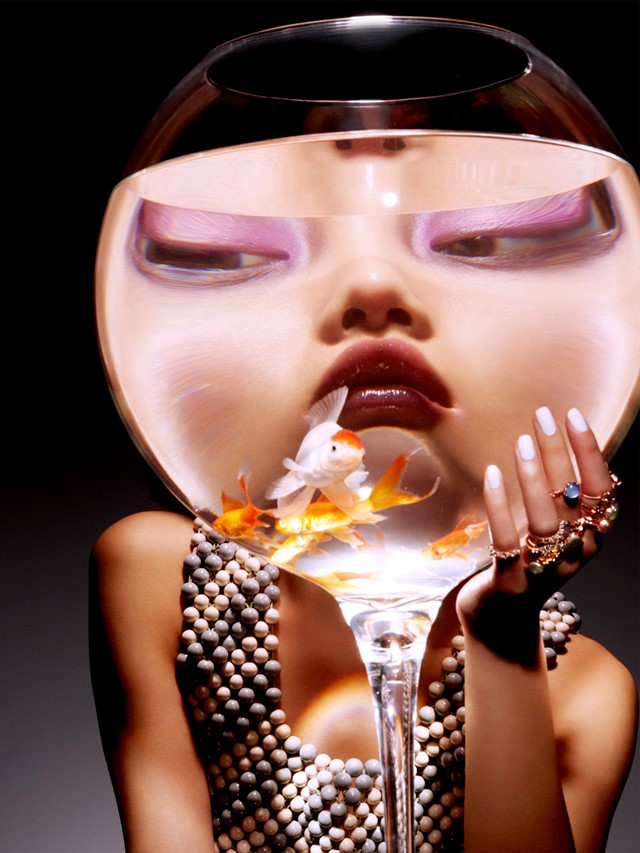
“I grew up playing around with my friends doing little photoshoots,” she says. “It’s still one big dress-up party. AI is another way of making my work crazier and experimenting. In the beginning I was also like, ‘Holy shit, what is this?’ But I found my own way of combining my own photographs with AI. I enjoy the possibilities of life. I think it’s important to embrace that instead of worrying that things are changing. The unexpected is quite a big thing in my work in general. It’s also about being able to play.”
Sleeping Beauty takes an expanded approach to photographic exhibition curation, drawing on the set design skills of Jacobs’ regular collaborator, the Dutch artist and designer Sabine Marcelis, to respond to her work in the space. Among other design elements, the start of the exhibition features large glass cubes in primary colours inspired by Mondrian, and there are mirrored floors and corridors. These interventions also impact the way in which the viewer sees themselves in the space. “It’s really nice to have that whole environment become something else,” she says. “It is unexpected in a photographic space. It’s nice to go full on with the whole atmosphere; you go through my world.”
Sleeping Beauty by Carlijn Jacobs is on show at Foam in Amsterdam until 21 January 2024.
